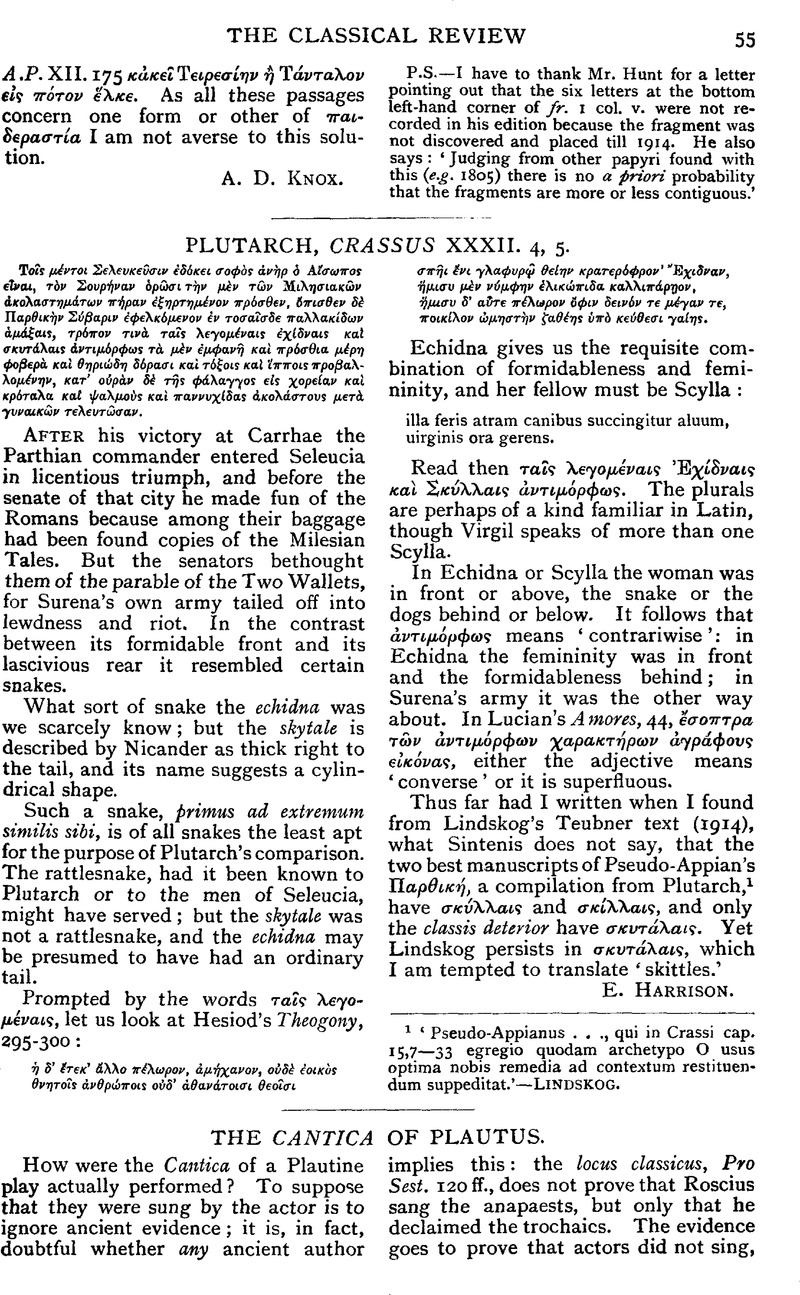No CrossRef data available.
Published online by Cambridge University Press: 27 October 2009

page 56 note 1 In the Stichus all the lyrics except thirteen lines come at the beginning (1–47); lines 48–62, an alternative iambic version, are usually thought to be a substitute written when Plautus' elaborate lyrics were no longer understood. Is it not more likely that it is the lyrics which were substituted later by Plautus himself for the original iambics of this early play, at a time when he had made such lyric scenes popular?
page 58 note 1 Fränkel's assumed influence of Roman tragedy seems unlikely; the considerable fragments extant show no trace of the Plautine metrical variety as the long fragment of Caecilius does. Yet perhaps the only living highclass Greek music in P.'s time was that of tragedy (cf. the Orestes papyrus), which is known to have been performed in Roman times. The many lyric papyri are never accompanied by the music.
The influence of the Euripidean monody is discounted by the fact that Ennius was the first Roman to specialise in Euripides (though the Greeks rarely revived any other plays). The complete break with Greek tradition is marked not only by metrical changes, but by change of accompaniment. The indispensable tibicen in the Roman theatre suggests affiliation with native Italian rather than with Greek drama. (It is significant that in Roman drama the lyrics are never choral.)